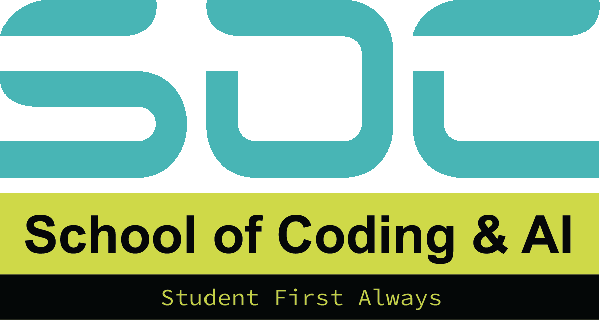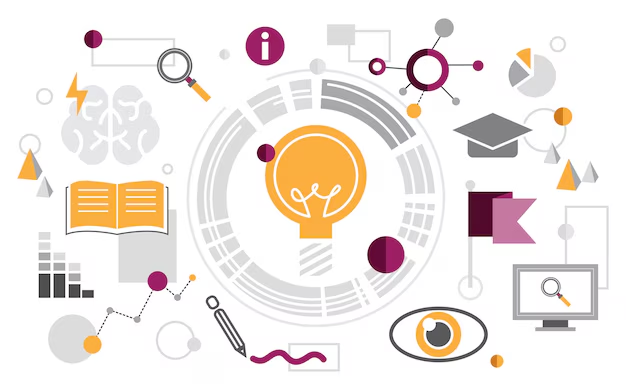Top 10 AI Tools for Programmers Should Know in 2026
Artificial intelligence (AI) is transforming how programmers approach coding, testing, debugging, and project management. Whether you’re an experienced developer or just getting started, using the power of AI technologies can boost your productivity, simplify complex tasks, and keep you ahead of the curve.
In this article, we will look at the top AI tools for programmers should be aware of by 2026. From code creation to project management, these solutions are designed to suit the different requirements of today’s coders. In addition, we’ll look at the scope of computer science and how artificial intelligence is altering its future.
Why Should Programmers Use AI Tools?
Artificial intelligence tools are no longer optional in today’s quickly changing technological ecosystem. These tools enable programmers to:
- Increasing productivity: Automating monotonous chores.
- Improving Code Quality: Reducing bugs and improving performance.
- Improving learning: Offering tailored ideas and insights.
- Staying competitive: Assisting developers in implementing cutting-edge approaches.
Now let’s look at the top AI tools for programmers in 2026.
Also Read – 15 Best AI Tools for Small Businesses
Top 10 AI Tools Every Programmer Must Know
1. GitHub Copilot
Best for: Code suggestions and auto-completion.
GitHub Copilot leverages OpenAI’s Codex to make real-time code suggestions. This AI-powered application smoothly interacts with editors such as VS Code, allowing you to create code faster and with fewer errors.
Key features:
- Predictive coding.
- Multilingual support.
- Easy debugging.
2. Tab Nine
Best for: Advanced auto-completions.
TabNine is a sophisticated AI tool that uses deep learning to suggest code completions based on your writing style.
Key features:
- Compatible with most programming languages.
- Supports major IDEs.
- For greater flexibility, consider both cloud and local models.
3. Kite
Best for: Python programmers.
Kite is an AI-powered coding aid built exclusively for Python coders. It makes intelligent suggestions and guides you through complex libraries with ease.
Key Features:
- 100% local processing for privacy.
- Contextual completions.
- Documentation snippets.
4. PyCharm
Best for: Advanced debugging.
PyCharm’s AI tools help programmers debug more quickly by evaluating code and flagging potential errors in real-time.
Key features:
- Smart code navigation.
- Built-in version control integration.
- Intelligent ideas for code optimisation.
5. DeepCode (Snyk Code)
Best for: Code review.
DeepCode, which is now integrated with Snyk, employs artificial intelligence to scan your code for vulnerabilities and performance issues.
Key Features:
- AI-powered bug detection.
- Real-time feedback.
- Team collaboration features.
6. Amazon CodeWhisperer
Best for: Cloud-based coding support.
This AI-powered tool from Amazon helps programmers write code faster and better by making clever suggestions.
Key features:
- Integration of AWS services.
- Multilingual support.
- Secure coding suggestions.
7. CodeT5
Best for: Creating custom code.
CodeT5 is an open-source AI model used for coding activities such as code generation, translation, and documentation.
Key features:
- Customisable.
- Extremely effective on large projects.
- Pre-trained on several datasets.
8. Visual Studio. IntelliCode
Best for: Intelligent code reviews.
IntelliCode takes auto-completion to the next level by leveraging AI to provide code snippets based on team practices and frequently used patterns.
Key features:
- Integrates easily with Visual Studio.
- Adapts to your programming style.
- Offers team-wide code insights.
9. Codota
Best for: Java developers.
Codota is a Java AI assistant that helps you develop error-free code by recommending patches and optimisations.
Key Features:
- Context-aware recommendations.
- Multi-IDE support.
- Cloud-based and on-premise options.
10. OpenAI GPT Tools
Best for: General-purpose programming jobs.
OpenAI technologies, such as ChatGPT, can assist programmers with a variety of activities, including code explanation and problem-solving.
Key features:
- Language-agnostic.
- Great for learning and brainstorming.
- Customisable via API.
Conclusion
The emergence of AI tools for programmers, allowing them to code smarter, faster, and more efficiently. Tools like GitHub Copilot, TabNine, and DeepCode are critical for remaining competitive in the IT business. As the scope of computer science expands, including these AI tools in your workflow is no longer an option—it’s essential for success in this dynamic industry.
Whether you’re a seasoned developer or a coding newbie, now is the time to embrace AI-powered tools and change the way you work.
Frequently Asked Questions
AI is more than a tool; it is transforming the discipline of computer science. Key implications include:
- Automating monotonous work and allowing developers to focus on innovation.
- AI-powered debugging and code suggestions enable faster problem-solving.
- Expansion of creative potential in fields such as game design and AI-powered applications.
The project at hand ultimately determines the greatest AI tool for developers, but GitHub Copilot is a clear choice among the programming community. GitHub developed Copilot in partnership with OpenAI, which functions as an intelligent pair programmer, assisting developers in writing code faster and with fewer errors. It can propose entire lines or blocks of code, autocomplete functions, and even produce boilerplate code for common tasks. Its ability to interpret natural language prompts allows developers to simply describe what they want to construct, and Copilot will generate the skeleton code for them, saving them hours of labour. Aside from Copilot, other notable AI solutions include Tabnine for code completion and DeepCode for real-time code reviews backed by machine learning.
Most programmers now employ AI-powered code assistants that are integrated directly into their IDE or development workflow. GitHub Copilot is likely the most popular, particularly among developers using Visual Studio Code, JetBrains, or Neovim. Many engineers use ChatGPT (like you are right now!) to generate code snippets, debug complex algorithms, and explain them in plain English. Kite and Tabnine are popular tools for smart autocompletion, and AI-powered linters like DeepCode or Codacy assist programmers in detecting errors and maintaining clean, secure code. In short, current programmers are incorporating AI into all stages of software development, from planning to testing.
Yes, ChatGPT is quite useful for coding, especially when used properly. While it will not replace your coding talents, it can serve as a valuable copilot for brainstorming ideas, creating code templates, explaining unfamiliar grammar, and even translating code between languages. For beginners, ChatGPT helps simplify complicated programming concepts. For pros, it’s a rapid method to write functions, repair errors, and experiment with different solutions. However, it is critical to note that AI-generated code should constantly be evaluated; ChatGPT can make mistakes or develop inefficient reasoning if not properly supervised. When used correctly, it can greatly increase productivity and problem-solving speed.
Looking ahead to 2025, the ideal AI for coding is expected to be a more advanced set of tools that integrate conversational AI, code generation, and real-time collaboration. GitHub Copilot X, the latest generation of Copilot, offers enhanced context awareness, integrated voice commands, and deeper integration with testing frameworks. Along with it, OpenAI’s ChatGPT with Code Interpreter and Custom GPTs will remain crucial, assisting developers in automating tasks ranging from generating test cases to building small apps from start to finish. Another trend is the growth of AI-powered DevOps tools such as Codex and Tabnine, as well as new entrants capable of handling deployment, monitoring, and debugging independently. So, the greatest AI for coding in 2025 will be the one that best fits your tech stack and workflow, while Copilot and ChatGPT will almost certainly remain at the forefront.





